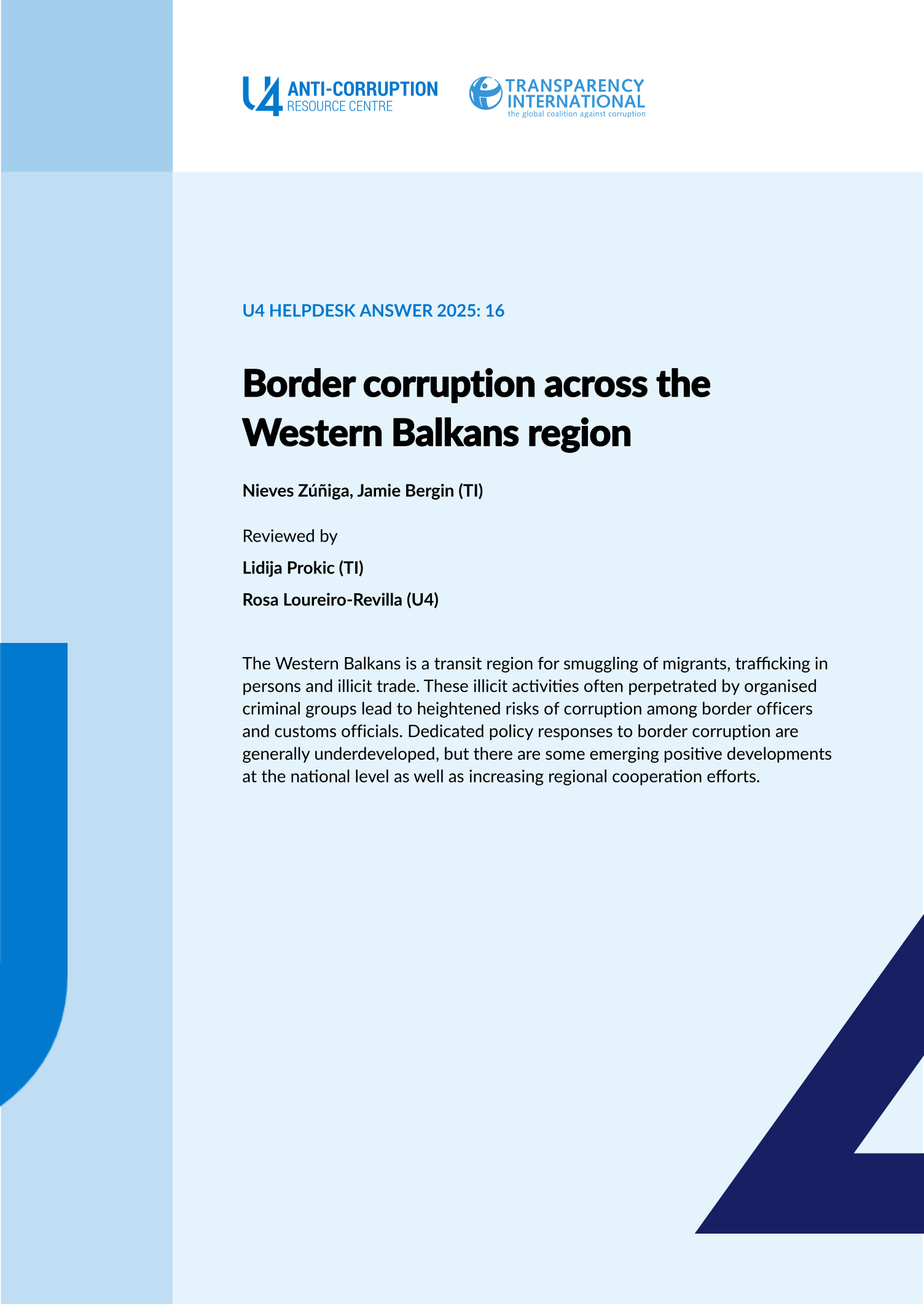Main points
- Border corruption occurs when border guard and customs authorities accept undue benefits from private actors to enable criminal activities, which may include trafficking in persons, smuggling of migrants and various forms of illicit trade, such as the smuggling of cigarettes and counterfeit commodities.
- Certain factors put the Western Balkans at risk for border corruption, including its status as a transit region for such activities, the presence of organised criminal groups and the under-resourced capacities of border authorities.
- The lack of comprehensive, comparative studies makes it difficult to determine the full scale of border corruption or the extent to which it enables these crimes in the region. Nevertheless, in most Western Balkan countries, there have been various reports and even arrests of border authorities for engaging in corruption in recent years.
- For example, in 2024, Croatian authorities uncovered a smuggling operation in which customs officials reportedly accepted bribes of up to €1,500 to allow the passage of vehicles carrying migrants into Italy. Similarly, in 2022, a joint operation led by Albania and Kosovo resulted in the arrest of 58 border police officers from both countries, suspected of taking bribes in return for enabling the illicit movement of various goods.
- As is generally the case beyond the region, there appears to be a lack of dedicated national frameworks for addressing border corruption in the Western Balkans. However, the existence of recent regional projects and other interventions indicate increased stakeholder willingness to address such risks.
- Furthermore, the European Commission has considered anti-corruption efforts regarding border guards and customs authorities in its enlargement reports on the accession process for Western Balkan countries, albeit not systematically.
- The broader literature recommends a holistic set of preventive and reactive measures to counter border corruption, including risk management, internal monitoring, investment in and training of border officials, reporting channels and sanctions. Evidence suggests some of these measures are being used across the region.



